Coronavirus: How Southend hopes to 'bounce back'
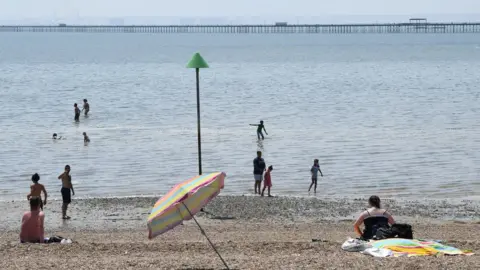 PA Media
PA MediaSeaside resorts are set to be packed with tourists this summer as people holiday in England rather than abroad. BBC News went to the Essex coast to see how it is preparing for the expected influx.
Southend-on-Sea already has a lot going for it.
It's got the world's longest pleasure pier, is among the warmest and driest parts of the UK and is popular with people looking to escape London and enjoy some fresh, sea air.
As England emerges from lockdown, the town is hoping it is well-placed to make the most of a hoped-for resurgence of British seaside holidays.
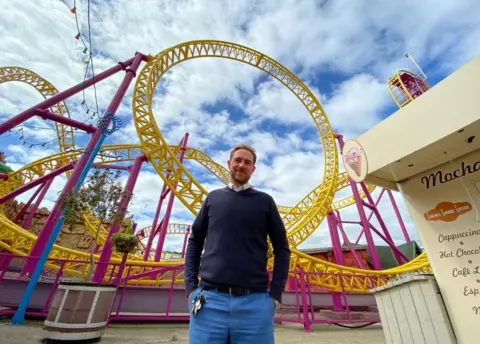 BBC
BBC"We'll be taking baby steps... but Southend is ready for more visitors," said Marc Miller, managing director of the company that owns the town's theme park Adventure Island and aquarium Sealife Adventure.
"There are going to be some challenging times and there's going to be a lot of talking to the customers, working out what their requirements are.
"Ultimately it's about keeping the customers and staff safe, and getting that confidence."
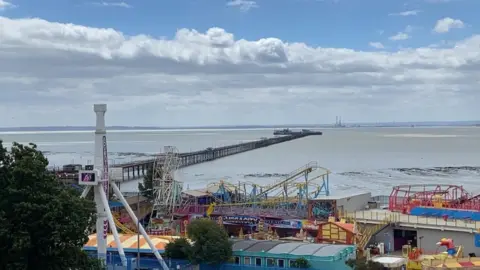 BBC
BBCWhen the sites reopen on Saturday, restrictions will include new seating rules on some of the rides and a limit on visitor numbers.
Entrance will be capped at 4,000 people rather than the usual 15-20,000 visitors.
Mr Miller added: "We are very lucky because we are by the sea, we are outside, we've got a breeze, so we see it as being a safe environment.
"We're cleaning all of the rides, the attractions, the restaurants, anything that has got touch points, to make it safe for customers and for the staff."
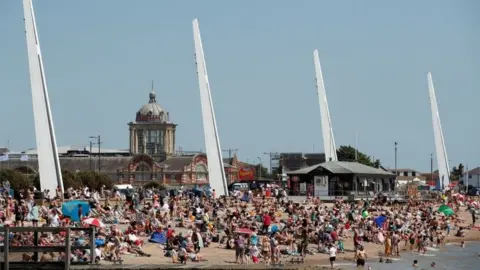 Reuters
ReutersLike many of England's famous coastal towns, from Bournemouth in the south west to Scarborough in the north, the number of people in Southend swells and shrinks depending on the weather.
Last week, its seafront heaved with sun seekers. This week, blustery beneath uncertain clouds, the beach is largely empty.
The bulk of Southend's visitors are daytrippers, usually from London.
But its key attractions are currently closed - the Sealife Centre, the town's 1.34-mile (2km) pier and of course its theme parks.
As they ready themselves to reopen, the Happidrome arcade on the seafront plans to hold fire.
Owner Martin Richardson said he was worried about the survival of his business but he had "more respect for my customers than my pocket".
The 54-year-old said he would wait to see "how well behaved" the public is before opening his doors.
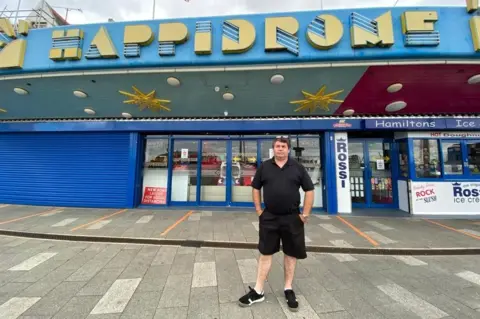 BBC
BBCMr Richardson said he hoped Southend would get a "massive bounce back".
He said the town was "open for business" but the key would be public awareness and "common sense".
"We need to get the public used to the new world, as much as the businesses.
"Public awareness is going to be number one, if you're going to come down here, you're going to have to expect to go in a queue."
He said it was a opportunity for the "UK to reinvent itself" and capitalise on people holidaying closer to home but called for "clear leadership and strong and clear guidance."
"The only reason we go abroad is for the sunny weather, we have got everything they have got abroad and sometimes better," he said.
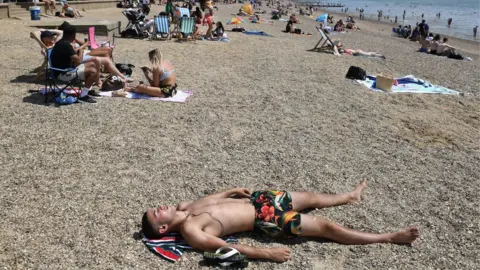 PA Media
PA MediaEarlier this month, authorities in Bournemouth had to declare a major incident after beach overcrowding.
Southend Council said it was confident it could avoid that.
A contraflow system has been put in place along the main seafront to give pedestrians extra space.
Social distancing markings have been sprayed on the floor beside parking meters and railings have been installed to ensure safe queuing for the toilets next to the beach.
Volunteers have been out at weekends to give advice and help wherever needed.
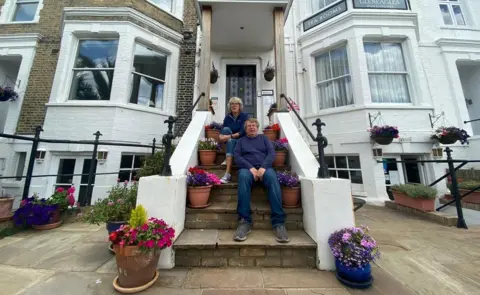 BBC
BBCGarry and Penny Lowen at Gleneagles Guesthouse and Tearooms have remained open for key workers, so have already got to grips with social distancing on check-in and have had a number of other measures in place.
Mr Lowen said they had taken a few room bookings for Saturday but "we've not been inundated".
"Seaside towns got a bad reputation for social distancing last weekend so it's going to take a while to get that confidence back."
He said they had been part of a taskforce which had developed a "stay safe tick" so that visitors know a business is Covid-safe.
"It's not going to be as busy as previous years but it's about giving people confidence," he said.

Seven miles of seafront
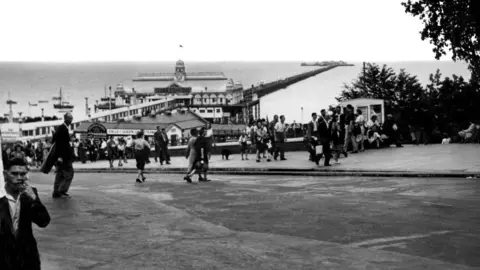 Alamy
Alamy- Southend has a population of about 183,000
- The town's pier, acclaimed as the world's longest, was originally a wooden structure built in 1830
- It has seven miles (11km) of seafront and is the biggest town in Essex

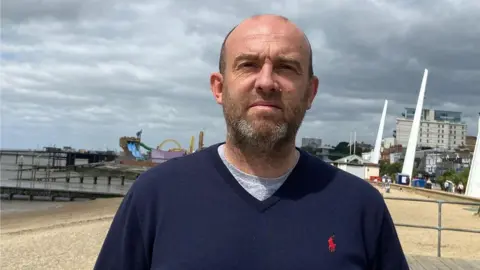 BBC
BBCPebbles One cafe owner Paul Thompson said "everyone working together" was key to boosting Southend's prospects of clawing back lost business.
He said the cafe had been open for takeaway for six weeks and he has no plans to fully reopen this weekend.
Mr Thompson, who owns a number of businesses and has been a trader on the seafront for 18 years, said he might open the outside terrace depending on "how things go".
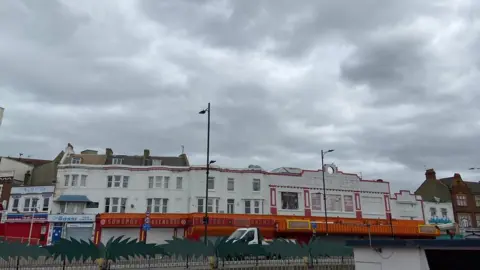 BBC
BBCHe said: "We are not seeing the huge numbers we would normally see and we're hoping from 4 July more people come.
"The council is doing everything it can to support tourism and we need the government to as we've only got two months of trade left before the winter."
Mr Thompson said businesses were pushing for free parking for visitors and to bring back the illuminations at the seafront to extend the season.
"Southend will bounce back," he said.
Find BBC News East of England on Facebook, Instagram and Twitter. If you have a story suggestion email [email protected]
